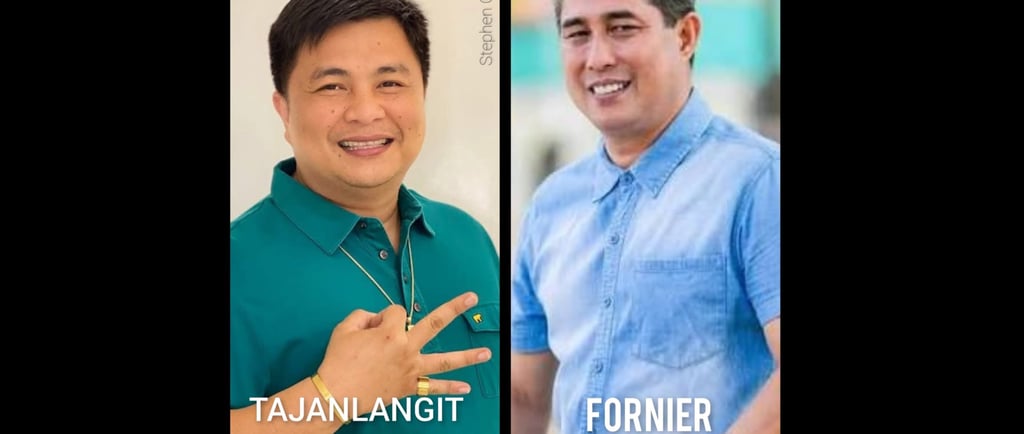The DSWD AICS Program and the Imperative of Depoliticization
THE EDITORIAL CHEESE
Patrick Petinglay Villavert
11/2/20253 min read


The Assistance to Individuals in Crisis Situation (AICS) program is one of the Philippine government's most critical social protection measures. Managed by the Department of Social Welfare and Development (DSWD), AICS serves as a vital safety net, providing swift financial and material assistance to Filipinos confronting unexpected and life-altering crises. It acts as a stop-gap measure to support the recovery of individuals and families from severe adversity.
What AICS Provides
AICS is not a long-term cash grant but an immediate intervention to address a documented crisis. The program provides various types of assistance, often in the form of financial grants or guarantee letters (GLs), including:
Medical Assistance: For hospitalization, major operations, or purchase of prescribed medicine.
Burial Assistance: To cover funeral and interment expenses for a deceased family member.
Educational Assistance: To help indigent students with school fees or related expenses (subject to specific guidelines).
Transportation Assistance: For individuals stranded or needing to return home due to an emergency.
Cash Relief: For food or other immediate support services following a disaster or sudden financial disruption.
The amount of assistance is needs-based and determined by a social worker's assessment, adhering to established DSWD ceilings.
Eligibility for AICS
Unlike employment programs, AICS is crisis-driven and not solely restricted by income level, though priority is consistently given to the poor and vulnerable. To be eligible, an individual or family must be:
Facing a Crisis Situation: This must be a disruptive or difficult event that prevents the client from adequately performing their social functions, such as severe illness, death, displacement due to calamity, or other unexpected adverse circumstances.
A Filipino Citizen: The program is generally for Filipinos in need.
Client or Authorized Representative: The client (the person in crisis or the beneficiary) or their duly authorized representative must personally apply.
The Application and Assessment Process
The AICS process is designed to be streamlined, often involving a walk-in application to a DSWD Central Office, Field Office, or the Crisis Intervention Unit (CIU) at the DSWD compound, or through local Social Welfare and Development (SWAD) offices.
Submission of Documentary Requirements (Screening): The client must present a valid ID and documentation specific to the crisis being addressed.
For Medical: Medical certificate/clinical abstract, hospital bill/statement of account.
For Burial: Death certificate, funeral contract.
For Disaster: Barangay certificate or a police report/blotter, if applicable.
Interview and Assessment: A licensed DSWD Social Worker conducts a thorough interview and assessment to establish the client's eligibility, verify the crisis, and determine the appropriate type and amount of assistance needed.
Review and Approval: The social worker's recommendation is reviewed and approved by the authorized DSWD official (based on the amount requested).
Releasing of Assistance: The approved assistance is released, either through a cash payout or a Guarantee Letter (GL) addressed to a specific hospital, funeral parlor, or service provider.
The Problem of Political Presence in Payout Events
While the DSWD acknowledges referrals from legislators and local government units (LGUs) as a means to reach the vulnerable, their prominent presence during AICS payout and distribution activities fundamentally contradicts the spirit of public service.
The DSWD has implemented and continually strengthens its "Anti-Epal" policy (Bawal ang Epal Dito), recognizing the severe risk of politicization:
Misconstruing the Source of Funds: AICS is a national government program funded by taxpayer money under the General Appropriations Act (GAA). When a politician is the one physically handing the cash to beneficiaries, or when their names/faces are emblazoned on banners and materials at the distribution site, it creates the false and manipulative impression that the aid is a personal gift or project of that politician.
Creation of "Debt of Gratitude" (Utang na Loob): This credit-claiming tactic weaponizes government aid by generating a sense of political obligation among vulnerable recipients. It can coerce beneficiaries into supporting the politician, damaging the integrity of the democratic process.
Undermining DSWD Accountability: The visible involvement of politicians shifts focus away from the DSWD—the mandated implementing agency responsible for screening, social work assessment, and fund management. This blurs accountability and can lead to the erosion of public trust in the program's impartiality.
Distortion of Purpose: AICS payouts are intended to be solemn, dignified administrative processes where citizens receive their entitled government assistance in a time of crisis. The presence of political grandstanding, speeches, and campaigning photo opportunities disrespects the plight of the beneficiaries and transforms a necessary public service into a political show.
To maintain the neutrality and integrity of the AICS program, the DSWD must be the sole entity visible during the actual disbursement of funds, ensuring that the aid is recognized as a right from the state, not a favor from an individual politician. Protecting AICS from "epal" politics is crucial to ensuring that assistance reaches those in crisis based on legitimate need, and not on political affiliation or loyalty.
